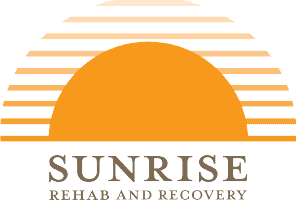At Sunrise Rehab and Recovery, we understand just how different we are all, and that everyone’s healing journey is unique. That is why we have designed specialized therapy services aimed at helping clients process trauma, overcome addiction, and learn how to live a happy and healthy life after treatment.
While at Sunrise Rehab and Recovery, clients will engage in the following therapy modalities:
Individual Therapy
Individual therapy allows clients to work one-on-one with a therapist or counselor without the added pressure of having to talk about sensitive personal topics around other people. This means that you can better focus on discussing your trauma and life experiences. It also allows you to see the ways that it has affected your actions and emotions.
There are likely effects that you aren’t aware of, that working with your therapist can help you understand and process. Over time, you’ll learn how to better manage your mental health symptoms, and how to replace them with healthier habits. Additionally, you will learn how to cope with difficult or uncomfortable situations without letting them cascade into unhealthy behaviors.
Cognitive Behavioral Therapy
Cognitive behavioral therapy, also called CBT, is a type of therapy that helps to target the thoughts and behaviors that are a result of your trauma. Trauma often leads to self-destructive behaviors that are difficult to control. With CBT, you can learn to identify these behaviors and replace them with healthier, more positive ones. You’ll also learn skills that encourage better communication and self-awareness. This will provide you with the tools that enable you to improve your thoughts and behaviors.
Dialectical Behavioral Therapy
Dialectical behavioral therapy, or DBT, is a type of therapy that is best suited to those who have intense or out-of-the-ordinary responses to certain triggers. As these events can be hallmarks of PTSD, DBT is often a preferred treatment option for those dealing with trauma. DBT helps through teaching effective communication and coping skills useful at minimizing negative intense responses. DBT also helps to treat some of the symptoms of substance abuse.
Family Therapy
When you are dealing with mental health problems or addiction, it can be difficult to see how your behavior affects those around you. The fact is that the entire family unit is affected by these conditions. From intense feelings, including rage, to the effects of addiction and substance abuse, there are many things that can have a negative impact on your family, even if you try to shield them from your problems.
In family therapy, everyone gets the opportunity to talk about how they’re feeling. Issues with family dynamics, communication, and how certain behaviors may be impacting each member of the family can be addressed in a safe environment that encourages open communication. These issues can be worked out together. This gives the family unit as a whole the chance to heal and become stronger together.
Our Services
Giving Hope To Those In Need
A residential facility providing a recovery-oriented approach to high quality comprehensive treatment for those struggling with addiction.
